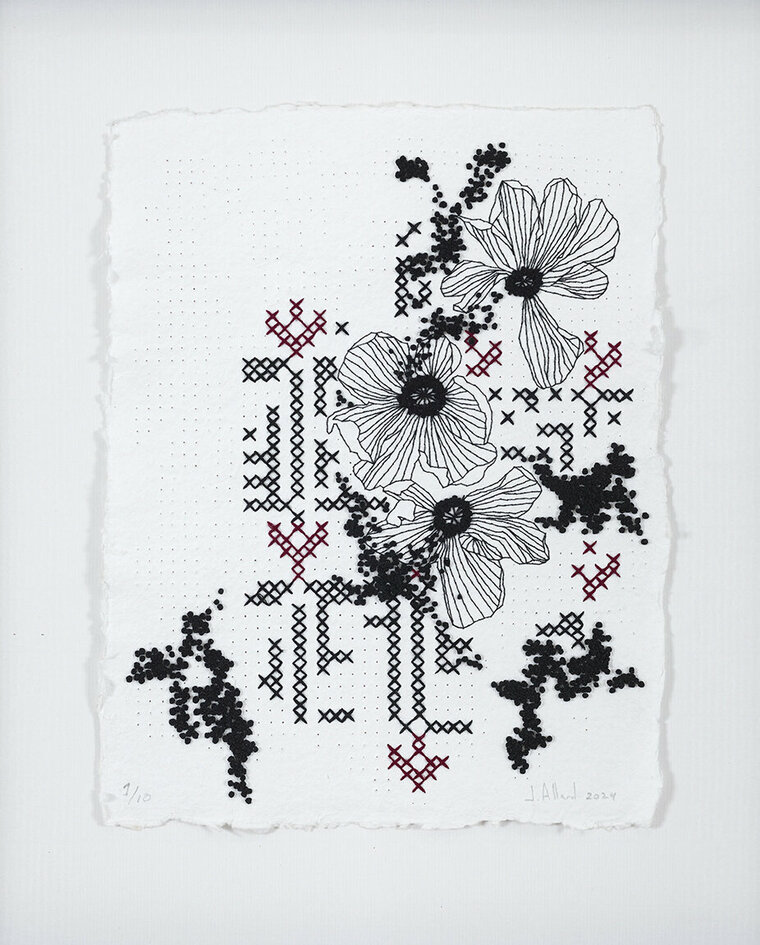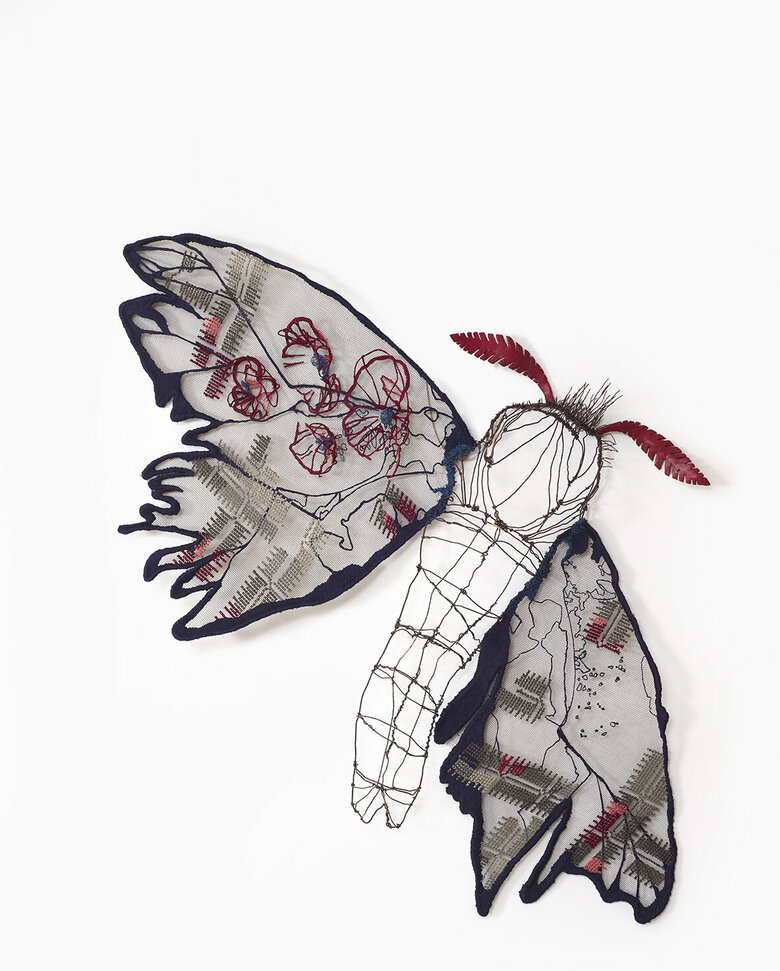Johanne Allard’s works Anemone Moth (Palestine), 2015, and Anemone (Palestine), 2015, are part of her series A Feast In the Ruins. Allard’s work explores the destructive effects of imperialism on societies and cultures, particularly in relation to the Arab world. Moths, traditionally symbols of destruction eating away at fabric, serve as the central motif in this series. The metal sculptures of insects with embroidered wings serve as a metaphor for the systematic attacks upon society, cultural fabric, and land in the Levant and Arab region through war, dispossession, and humanitarian imperialism. Each sculpture, meticulously crafted with a plant endemic to the country it represents, along with symbols of the mechanics of war and geographical features, tells a story through woven threads that create a topography of ruin, remembrance, and resurrection. These works stand as a homage to the people who have welcomed Allard to their countries, their homes, and into their lives.
The Anemone Moth (Palestine) depicts Palestine’s prolonged worn out devastation under Israeli occupation. The body of the moth is a mere skeletal framework, just enough to hold the entire work together. The wings are crumpled, but the embroidery with motifs inspired by the patterns of the keffiyeh as well as the stitched wilted poppy (Anemone) flowers highlight the main symbols of resistance and defiance. The moth’s antennas also remain vibrant, especially against the empty wire frames of the body, symbolizing continued awareness and vitality of the culture. Anemone (Palestine) captures a fragment of embroidery extracted from the moth sculpture, prioritizing the flower and pattern motif. Through this it highlights resistance, death, but also resurrection in connection with the blooming of the anemone, the national flower of Palestine.
Despite the themes being portrayed here, one is left with the sense of hope that Allard’s works exude. They acknowledge the unjust realities of life in the region, while also celebrating the continued survival of the culture and all it carries in the sense of intimacy and community. A deep gratitude and solidarity towards the people of the Levant and Arab region enriches Allard's artistic oeuvre. Her works serve as an homage to their resilience, their hospitality to her, and their unwavering humanity in the face of adversity.





.jpg)
.jpg)
.jpg)
.jpg)
.jpg)
.jpg)

